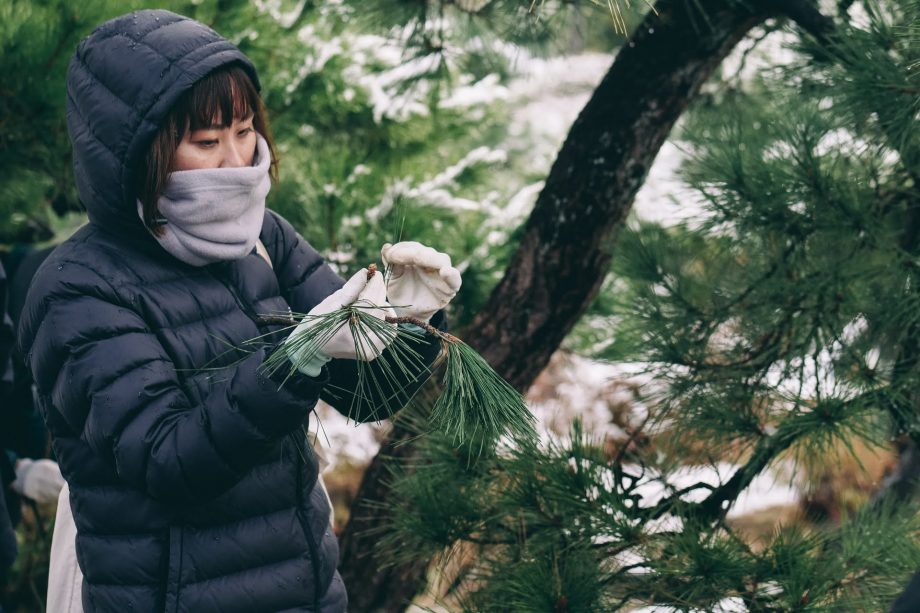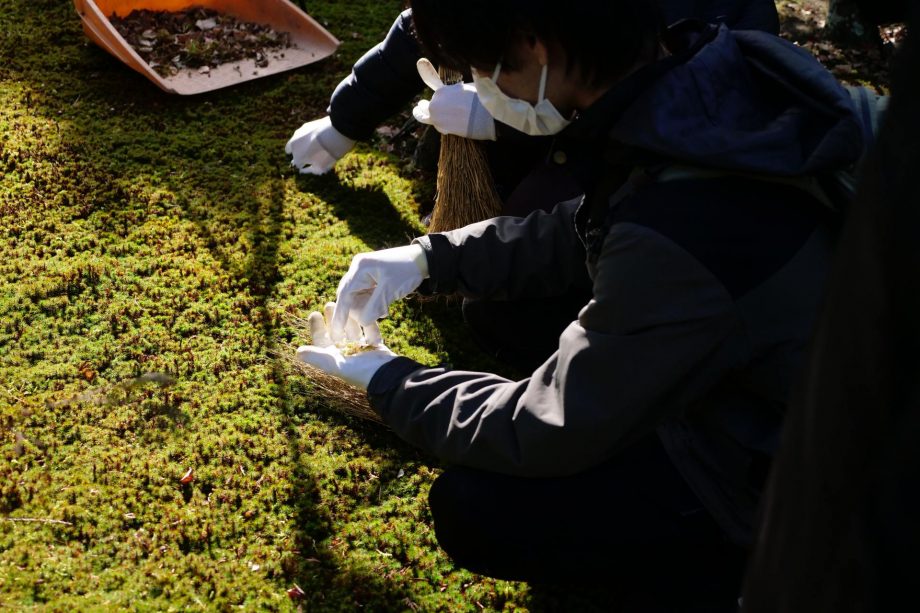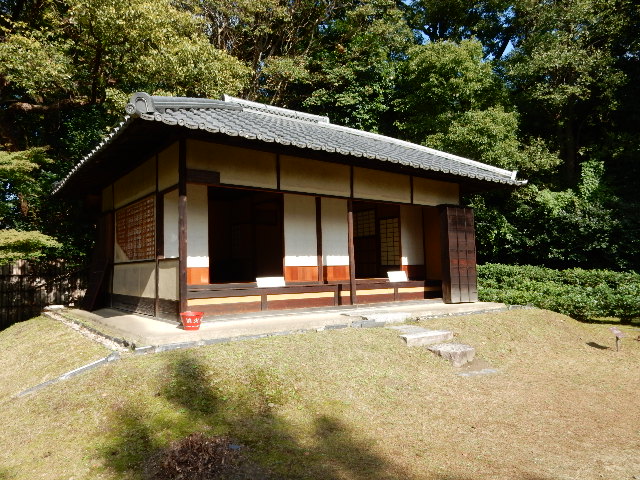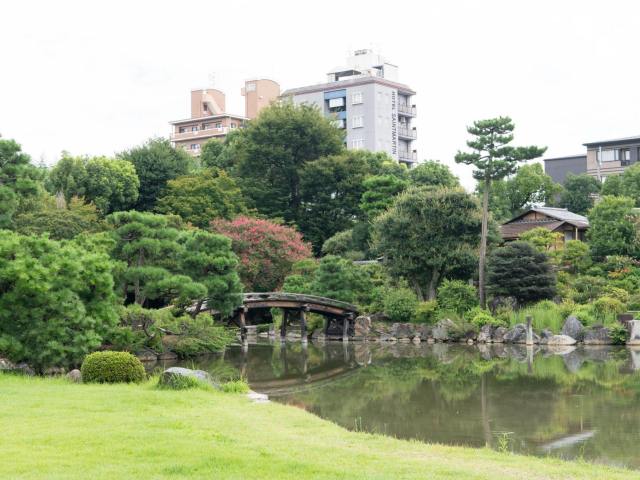Hands-on
- #Finished
- #誰でもウェルカム
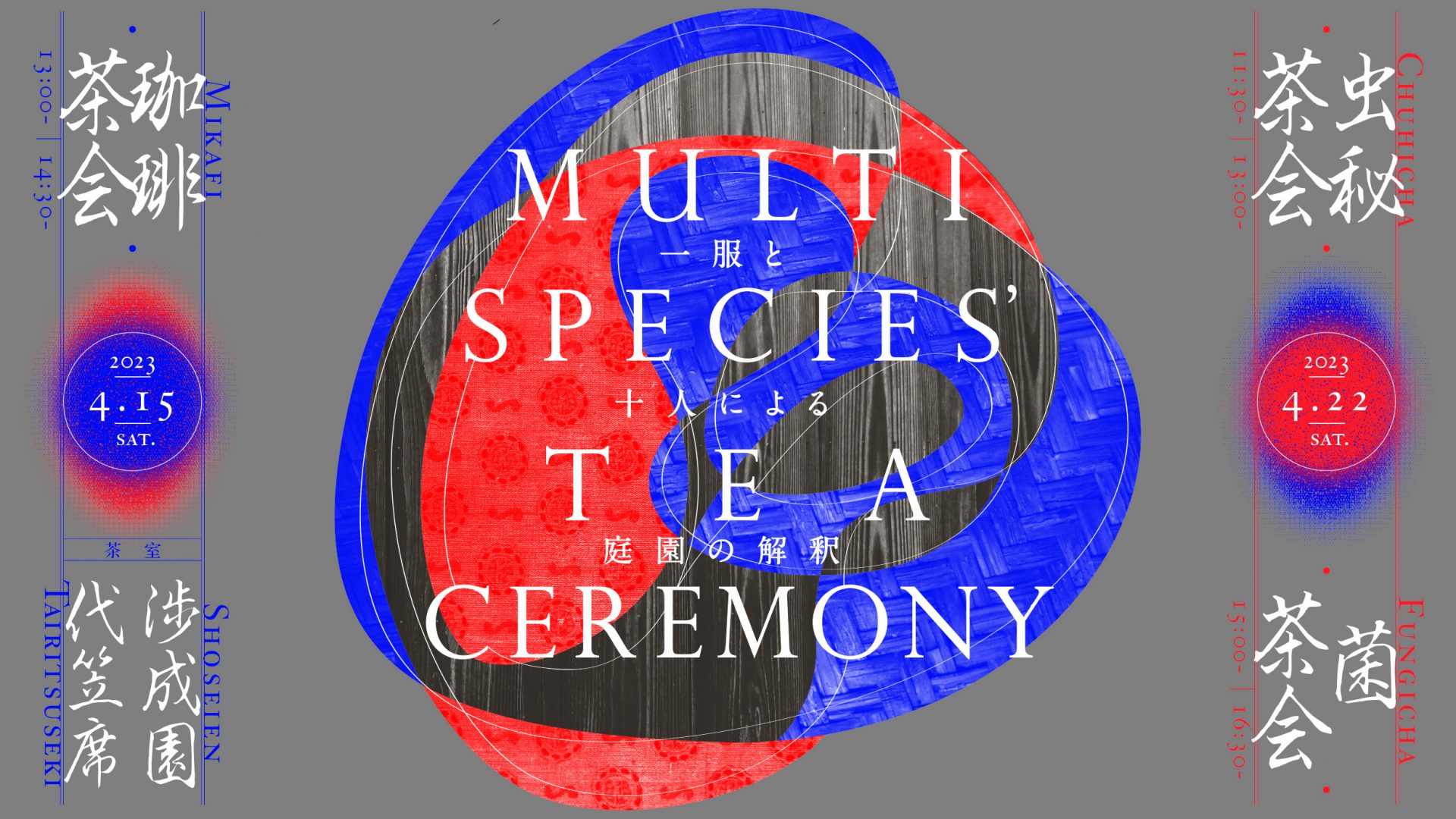
On the 15th and 22nd of April - SPCS will hold an experimental tea ceremony, revolving around the theme of biodiversity, in the Tairitsu-seki teahouse of Shosei-en, a garden belonging to the Higashi Honganji Temple. Three diverse types of ‘tea’ ceremonies will be offered over the two days, with teas made from mushrooms and even the dung of insects. Using the tea ceremony as a space for communication and art appreciation, participants will also be introduced to 10 artworks in and around the teahouse. These 10 artworks were created to explore the theme of biodiversity in the garden. Join us in this rare opportunity to experience the beauty of biodiversity with all five senses through the art of the tea ceremony.
※ This event is held as part of Higashi Honganji Temple’s 800th Anniversary Memorial Ceremony.
Sat, April 15, 2023 UTC+09:00
13:00-14:00, 14:30-15:30
Sat, April 22, 2023 UTC+09:00
11:30-12:30, 13:00-14:00, 15:00-16:00, 16:30-17:30
5 participants per ceremony
1500円 ※A separate 500yen donation for the upkeep and conservation efforts in Shosei-en will also be required upon entrance
Shosei-en is a garden that aims to redefine beauty while striking a balance between creating a comfortable space for both humans and non-human organisms alike. The gardeners from Ueyakato Landscape who are in charge of Shosei-en use the garden as a place to put into practice the buddhist teachings of Higashi Honganji Tenple, which encourage diversity.
Over three weeks in December 2022 and January 2023, participants from diverse backgrounds joined a workshop to experience the work and philosophy of these gardeners. A group of these designers, researchers, engineers and artists, have gathered once more to exhibit works that crystallize their learnings from the workshop. Layering their own perspectives over that of the gardeners’, their artworks aim to share their discoveries on the ‘beauty of biodiversity’, and provide viewers with hints to view Shosei-en in different lights. The Multispecies Tea Ceremony is an interactive space for all to appreciate the garden and their works with all 5 senses.
The Tairitsu Teahouse where the tea ceremonies will take place is normally not open to the public. As part of the 800th Anniversary Memorial Ceremony, a number of events will be held in and around Higashi Honganji. Don’t miss out on this rare opportunity!
Related Links: Gardening (and) the Wild
A tea ceremony is not just a time for tea, but a space in which each participant can interact with the host while enjoying everything surrounding them with all 5 senses. In the Multispecies Tea Ceremony, instead of the traditional hanging scrolls, ikebana or incense, participants will enjoy 10 different artworks installed in and around the teahouse. Each piece proposes a new lens with which to see a different sort of beauty in the otherwise glittering garden. The works on display will be prototypes and may vary from the ideal final forms first proposed. We hope that by talking with the artists and the gardeners and viewing the gardens on the day of the exhibition, you will be inspired by these works and experience the fascinating interplay of human and non-human life in the garden.
There are many rules in the tea room. By setting restrictions, you facilitate immersion into the space, asserts tea master Fukutaro Nakayama. It is a way to reset the body from the busyness before and prepare it for the input to come.
Appreciation can be a difficult activity. One may close off to an artwork that doesn’t connect with their own views, or the free thoughts that arise in one’s self may clash with the respect for the artist. There may even be times where one could be consumed by the space and their thoughts stop entirely.
In order for the tea ceremony to become a body-opening device to appreciate the artworks and garden well, this tea ceremony will be supervised by tea master Fukutaro Nakayama, who continually proposes new forms of tea ceremonies.
-
Fukutaro Nakayama
master of the tea ceremony
Born in 1986. Studied tea ceremony since college. He has organized “Kamocha,” a tea ceremony at the Kamo River, tea ceremonies and workshops in various locations, decorated the floors of Japanese-style inns, and supervised the design of tea rooms. By combining the wisdom and techniques of chanoyu into new forms, he is working to find various answers to the question of what the tea ceremony is all about.
Born in 1986. Studied tea ceremony since college. He has organized “Kamocha,” a tea ceremony at the Kamo River, tea ceremonies and workshops in various locations, decorated the floors of Japanese-style inns, and supervised the design of tea rooms. By combining the wisdom and techniques of chanoyu into new forms, he is working to find various answers to the question of what the tea ceremony is all about.
In this tea ceremony – we aim to experience and appreciate the beauty of biodiversity through all 5 senses. And thus, in the spirit of diversity, the tea served in this ceremony will not be the usual matcha, but will be as diverse as the different hosts serving them up. Coffee, fungi and moth dung – as you drink in the different stories behind each of these ‘teas’, we invite you to view the landscape around you too from a different angle.
Fungicha(菌茶)is conceived by Gergely Péter Barna and Thomas Ortiz, through collecting and cultivating wild mushrooms and subsequently creating and drinking the tea from those mushrooms, they aim to find a new way for us to connect to nature. There are over 4000 species of mushroom naturally growing in Japan, yet we only consume just around 10 species in our daily lives. Through the humble wild mushroom that plays an irreplaceable role in the ecosystem, this project aims to explore a closer connection to the ecosystem.
>>More information on Fungicha here

-
BARNA Gergely Péter
Circular Design Engineer/Creator
Father of 4, Gergely Péter BARNA was born in Hungary. After graduating from a high school specialising in arts, he has worked in the ateliers of various European artists and designers. He moved to Kyoto, Japan in 2010 to study Architecture and Design at the Kyoto Institute of Technology (KIT), where he got his doctoral degree in 2018. Parallel to studying, he worked as a plasterer and later as a carpenter at preservation sites of National Treasures, such as Kiyomizu-dera, and Shimogamo-jinja, to learn traditional Japanese crafts skills. After graduating from KIT, he focused on the integration of traditional crafts, sustainability, circular society and innovation. Since 2019 he is working at the KYOTO Design Lab of KIT as a Project Researcher. After working together on various sustainability projects since 2019, he founded Fungicha with Thomas Oritz in 2022 to bring living organisms (especially mushrooms), innovation and arts together in a form, that can be easily shared and communicated to people. He is also one of the founders of Circular Kyoto, a volunteer organization for environmental and social activities.
Father of 4, Gergely Péter BARNA was born in Hungary. After graduating from a high school specialising in arts, he has worked in the ateliers of various European artists and designers. He moved to Kyoto, Japan in 2010 to study Architecture and Design at the Kyoto Institute of Technology (KIT), where he got his doctoral degree in 2018. Parallel to studying, he worked as a plasterer and later as a carpenter at preservation sites of National Treasures, such as Kiyomizu-dera, and Shimogamo-jinja, to learn traditional Japanese crafts skills. After graduating from KIT, he focused on the integration of traditional crafts, sustainability, circular society and innovation. Since 2019 he is working at the KYOTO Design Lab of KIT as a Project Researcher. After working together on various sustainability projects since 2019, he founded Fungicha with Thomas Oritz in 2022 to bring living organisms (especially mushrooms), innovation and arts together in a form, that can be easily shared and communicated to people. He is also one of the founders of Circular Kyoto, a volunteer organization for environmental and social activities.
-
Thomas Ortiz
Independent engineer
Thomas Ortiz is a French-Spanish independent engineer and researcher whose work gravitates around the fields of energy, biology and decentralized technologies. In 2015, he co-founded the collaborative research program Paleo-Energy in France, aiming to collect and revive forgotten inventions that still have great potential to help with environmental and energy issues. He co-authored the book Retrofutur, published in French, English and in Japanese with Kawade Shoo Shinsha.
Based in Kyoto since 2019, he is conducting extensive research about innovative growing techniques for mushrooms and spends a lot of time in the wild documenting and collecting species.
In 2022, he co-founded Fungicha with Gergely Péter Barna. They aim to share about the power of mushrooms with the audience, through nature, art and technology.Thomas Ortiz is a French-Spanish independent engineer and researcher whose work gravitates around the fields of energy, biology and decentralized technologies. In 2015, he co-founded the collaborative research program Paleo-Energy in France, aiming to collect and revive forgotten inventions that still have great potential to help with environmental and energy issues. He co-authored the book Retrofutur, published in French, English and in Japanese with Kawade Shoo Shinsha.
Based in Kyoto since 2019, he is conducting extensive research about innovative growing techniques for mushrooms and spends a lot of time in the wild documenting and collecting species.
In 2022, he co-founded Fungicha with Gergely Péter Barna. They aim to share about the power of mushrooms with the audience, through nature, art and technology.
Chu-hi-cha (literally translated as Secret of Insects Tea) is a tea made from the dung of leaf-chomping moth larvae (moth caterpillars), developed by Takeshi Maruoka of Kyoto University. The aroma and taste of Chu-hi-cha vary dramatically depending on the type of plant and insect that produce it. Chu-hi-cha started a crowdfunding campaign in 2023 that became a roaring success, raising over 300% of their initial goal. Preparations for the commercialisation of the tea are now in the final stages.

-
Tsuyoshi Maruoka
Born in 1996. D. student at the Graduate School of Agricultural Science, Kyoto University. He has been a member of the current “Chemical Ecology Laboratory” since his fourth year at university, and conducted research on the tripartite system of caterpillars, plants, and parasitic wasps during his master’s course. Influenced by his seniors in the lab, he developed a love for insects (mainly moths) during his second year of master’s studies. He began searching for “moths” every day and night, and his life became all about insects. Soon after, he discovered that moth larvae feces makes a delicious tea, and has tasted more than 50 kinds of insect feces. Currently, as a doctoral student, he has begun serious research on moth larval feces and aims to become a feces specialist.
Born in 1996. D. student at the Graduate School of Agricultural Science, Kyoto University. He has been a member of the current “Chemical Ecology Laboratory” since his fourth year at university, and conducted research on the tripartite system of caterpillars, plants, and parasitic wasps during his master’s course. Influenced by his seniors in the lab, he developed a love for insects (mainly moths) during his second year of master’s studies. He began searching for “moths” every day and night, and his life became all about insects. Soon after, he discovered that moth larvae feces makes a delicious tea, and has tasted more than 50 kinds of insect feces. Currently, as a doctoral student, he has begun serious research on moth larval feces and aims to become a feces specialist.
The Mikafi roasting platform seeks to democratize the coffee roasting cycle by connecting farmers, local businesses and nature through technology. This ecosystem of digital services includes a fully automated IoT roasting machine, a coffee management platform as well as physical and digital coffee experiences for consumers. Mikafi was selected as a winner in the crQlr Awards (Circular Awards) 2022, an international competition for projects and ideas designing the circular economy and is coming to Japan from Switzerland to explore new possibilities in coffee culture.

-
Marius Disler
Co-Founder and CEO of Mikafi
With a background in both business administration and design, Marius Disler brings a unique perspective to his role as the founder of Mikafi. Driven by a vision to create a company that fosters an ecosystem approach, he is dedicated to building strong partnerships with suppliers, distributors, and retailers along the entire supply chain. His goal is to create a seamless and sustainable coffee experience, one that prioritizes both the human experience and the health of the environment. With Mikafi, Marius Disler aims to redefine the industry and set a new standard for coffee excellence, both in quality and in sustainability.
With a background in both business administration and design, Marius Disler brings a unique perspective to his role as the founder of Mikafi. Driven by a vision to create a company that fosters an ecosystem approach, he is dedicated to building strong partnerships with suppliers, distributors, and retailers along the entire supply chain. His goal is to create a seamless and sustainable coffee experience, one that prioritizes both the human experience and the health of the environment. With Mikafi, Marius Disler aims to redefine the industry and set a new standard for coffee excellence, both in quality and in sustainability.

The concept of multispecies is one that has been attracting attention in many fields of design, cultural anthropology, biology and economics in recent years. It refers to symbiosis not only among humans but also with all other species, including plants, animals and micro-organisms.
One example of this subject in research is by an interdisciplinary team of 19 researchers, led by Christoph Rupprecht, former Senior Research Fellow at the Institute for Integrated Global Environmental Studies (now Associate Professor at the Department of Environmental Design, Faculty of Social Co-Creation, Ehime University). They published an article in the journal Global Sustainability entitled “Multispecies Sustainability”, proposing a new concept of sustainability based on multiple species, that takes into account the challenges of well-being for humanity.
Microbiomes, radiation, viruses, bacteria – these uncontrollable forces of nature are often dismissed as errors or dangerous. However, can we reclaim the view of this uncontrollable biodiversity and propose a new positive way of creatively designing for and with these ‘errors’? That is the purpose of the community SPCS.
SPCS is a program that explores new ways of co-creation with nature through prototyping. “In what ways can we work with the uncontrollable power of nature and design systems that promote creativity?” Is our guiding question. Each season, we invite lecturers from different fields to carry out practical workshops. Instead of manipulating nature for our human needs, we explore a co-creationary approach. We encourage a speculative output formed by each participant’s curiosity towards biological mechanisms.
15th April 2023(Sat)
13:00-14:00 Coffee ceremony Ⅰ
14:30-15:30 Coffee ceremony Ⅱ
22nd April 2023(Sat)
11:30-12:30 Secrets of Insects Tea Ⅰ
13:00-14:00 Secrets of Insects Tea Ⅱ
15:00-16:00 Fungicha Ⅰ
16:30-17:30 Fungicha Ⅱ
- Designers, architects and developers interested in biophilic design, who are seeking ways to work with plants in urban planning and landscape design
- Researchers and artists who want to incorporate themes of plants, insects, microscopic organisms and biodiversity in their work.
- Planners and designers in Japanese culture businesses who are interested in redesigning their businesses with themes of Circularity and Biodiversity as their core values
- People who are interested in exploring the relationship between humans and nature and the environment in a creative way.
- Architects and manufacturers designing relationships between nature and humans.
- Designers and creators who want to find new inspiration from natural phenomena or develop new methods of expression.
- Planning and R&D professionals in companies working on circular design.
- Those interested in biology and biological design who want to learn how to explore and gather temporal information.
Dates
15th April 2023(Sat)
13:00-14:00、14:30-15:30
22nd April 2023(Sat)
11:30-12:30、13:00-14:00、15:00-16:00、16:30-17:30
Participants
5 per ceremony
Participation Fee
1,500yen(※A separate 500yen donation for the upkeep and conservation efforts in Shosei-en will also be required upon entrance.)
Venue
Tairitsu Teahouse, Shosei-en
Organiser
FabCafe Kyoto / Loftwork Inc.
With Support from
Ōtani-ha (Higashi Honganji Temple), Ueyakato Landscape, NOMURA MEDIAS Co.,Ltd.
Visual Design
Takamitsu Ohta
Please note
- If there are too many sign-ups, there may be a possibility that we choose participants through a raffle. We ask for your understanding on this matter.
- Photos of participants and the event may be uploaded to the FabCafe Kyoto/Loftwork.com website at a later date
- We reserve the right to change this program with no prior notice.
- Program may be cancelled due to wet weather (If the program is unable to continue to the inclement weather, notice will be sent that morning to the email registered)
Organizers
-
FabCafe Kyoto
-
株式会社ロフトワーク
-
Date & Time
-
Sat, April 15, 2023 13:00-14:00, 14:30-15:30 UTC+09:00
Sat, April 22, 2023 11:30-12:30, 13:00-14:00, 15:00-16:00, 16:30-17:30 UTC+09:00 -
Fee
-
1500円 ※A separate 500yen donation for the upkeep and conservation efforts in Shosei-en will also be required upon entrance
-
Capacity
-
5 participants per ceremony
-
Organizers & Sponsors
-
Organizers: FabCafe Kyoto, 株式会社ロフトワーク


